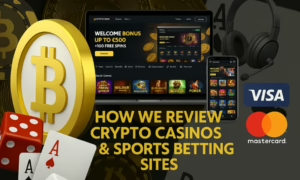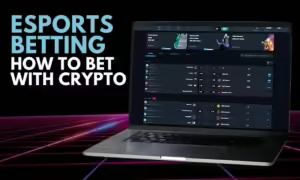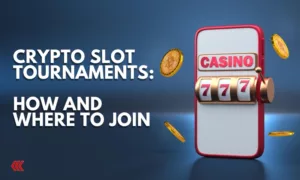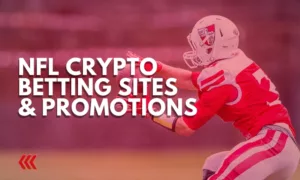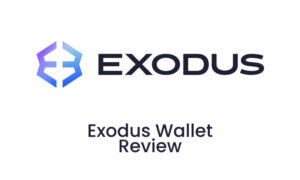Interview with LeadCoin founder Shmulik Grizim
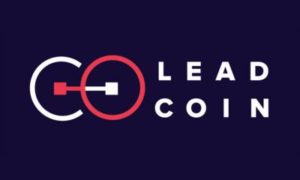
Bitcoin Chaser: A B2B coin such as LeadCoin is an interesting choice to solve the problem of matching internet traffic with what it is looking for. How did you come up with this idea?
LeadCoin: I came up with this idea after I experienced this problem with one of my previous companies, Webydo. At Webydo we would bring in thousands of leads every month from paid campaigns. Our sales representatives would then reach out to every lead, speaking to them and qualifying them. Despite all of these efforts we had very low conversion rates from website visitors to leads to paying customers. Most of the unconverted leads came to us with a real need, but our solution was not a good fit for them. We knew that we had valuable assets in these qualified and verified leads, but we had nothing to do with them, so they remained unused. These unused leads cost us a great deal of money, yet we had no way to recover the money we spent to acquire them. I want to give businesses the opportunity to resell their unused and qualified leads by creating a network where businesses can buy and sell qualified leads in real time from each other.
BC: What is the size of the market you are looking at in terms of recoverable money from lost leads?
LeadCoin: Google and Facebook made over $120 billion in revenues in 2017 from online advertisements. Statistics also show that the average conversion rate across all industries for these advertisements is around 3%. This means that 97% of the money businesses are spending on getting new leads for their business is lost. LeadCoin will help these companies recover some of their lost marketing budget by selling their qualified, unused leads in real time.
BC: How would 2 businesses determine the price at which they can trade leads? Would it be based on the cost of forgoing that lead?
LeadCoin: Sellers can list leads at whatever price they want. This price should however coincide with the total potential value of a lead. For example, let’s say you have a lead for website design project who says their maximum budget is 1,000. If a seller would list this lead for $750 it wouldn’t make sense for someone to buy it because they wouldn’t make a significant profit. The network will help sellers by recommending lead prices based on similar transactions. LeadCoin will also recommend a minimum price of 2% of the total potential yield of the lead. In the case of the website design lead this would mean a recommended minimum price of $20.
BC: How does LeadCoin verify and qualify the leads it gets?
LeadCoin: Sellers will be responsible for verifying and qualifying the leads before entering them into the network. All of this information will be public (except for the contact details). Any false information in regards to a lead’s description or contact details can be disputed. Lost disputes would mean that the sellers would need to pay a penalty and their ranking would be negatively affected, motivating sellers to be honest with their lead descriptions.
BC: Do you see people using LeadCoin for purposes other than buying and selling traffic and leads?
LeadCoin: Leads fuel the growth of every business, so buying more hot leads and selling leads that are poor matches will help any business grow by boosting its revenues. It’s not just about buying and selling leads. The focus of LeadCoin is to empower businesses to provide value for themselves, instead of giving most of the value to digital marketing giants like Google and Facebook.
BC: How robust do you expect the “LeadCoin economy” to be?
LeadCoin: We expect LeadCoin to grow to many industries creating a vast economy. Industries such as real estate, finance, website building and insurance are just a few industries that could benefit from the LeadCoin platform. Take for example a bank that advertises its mortgage services. Imagine this bank meets with a potential customer and cannot offer them a mortgage because the individual does not have a high enough credit score. Instead of losing with lead without receiving compensation, the bank could now sell the customer to another bank with more lenient guidelines for their mortgage applicants.
BC: Are there any additional developments you have in mind to add to LeadCoin’s services once it is launched?
LeadCoin: In addition to the desktop application decentralized lead sharing network LeadCoin will also have a mobile application. We will also develop a matching algorithm that will match buyers to sellers based on past transactions and search history.
BC: As far as your roadmap goes, which are the most crucial goals to achieve and why?
LeadCoin: We will soon have our public crowdsale which will be very important, as the crowdsale will provide the funds for us to develop the network. Following the crowdsale we will develop the LeadCoin network. These two steps will be the most crucial as they will set the foundation for the entire LeadCoin economy. While the other steps such as introducing Webydo.com as the first node and developing the SDK option are crucial for LeadCoin’s long term success, we must first have a successful crowdsale, so we can develop the initial platform.
BC: How do you expect LeadCoin to do in the secondary markets?
LeadCoin: We expect LeadCoin to excel globally, as every business that uses digital marketing campaigns suffers from the same problem, which is low conversion rates. We’ve already translated our white paper to additional languages, and we plan to support multiple languages within the platform.
BC: Do you know which exchanges will host LeadCoin once it launches?
LeadCoin: Legal restrictions prevent us from discussing any conversations that may or may not be happening regarding the LDC appearing on exchanges.
For more information visit the LeadCoin website
